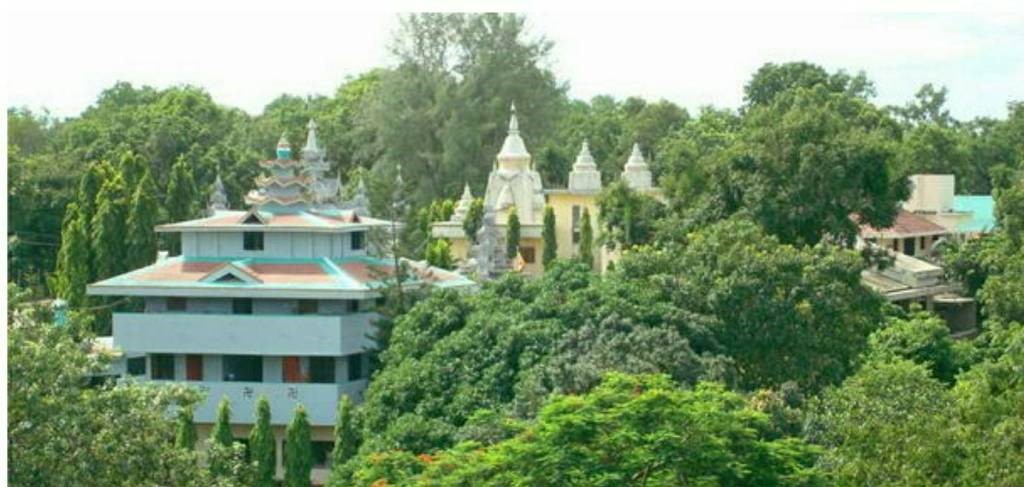Bangladesh is an over populated country with few open spaces of land. Because of the huge pressure from over population, its natural environment, biodiversity, and ecosystem maintenance are at risk as consequently so is sustainable livelihood and environmental peace. It is important for building greater resilience and sustainable communities in Bangladesh to ensure a cleaner, greener, and stable production system.
In Bangladesh, Buddhist communities are closely connected to nature, such as forests and local ecology, that serve to reduce the environmental crisis and the physical and economic suffering of human beings. Almost all Buddhist temples, meditation centers, and related institutions in Bangladesh are eco-friendly in one way or another. Among them, the Rajban Vihara of the Rangamati Hill Tracts is a historically revered Buddhist temple. The Rajban Vihara complex stands on 33 acres of contoured green land, embraced on all three sides by the majestic Kapti Lake.

The Venerable Sadhannada Mahathero, widely known as Bana Bhante (1920-2012 AD), was venerated for his deep spirituality having practiced 28 years of meditation in deep forests before permanently residing at the Rajban Vihara in 1977. He taught his followers not to harm others or nature for their livelihood. As such, the monks receive daily alms of local organic foods cultivated by the lay community. Any kind of slaughtered meat for dana to the resident monks is not permitted, nor is there any destruction of trees and natural resources that hurt the balance of the environment and the ecology.
The Rajban Vihara has over one hundred branch temples in the Chittagong Hill Tracts (CHT) and a few overseas. The branches also include forest monasteries (aranya kutir), meditation centers, and Buddhist educational institutions and hospitals. The Rajban Vihara and its branches also have more land and forests that contribute to community members’ livelihoods. Some of the temples serve Buddhists devotees by producing natural resources, foods, and fruits that supply local markets. Almost all the branch temples use solar electricity for their daily work with little use of hydro-electric energy which has been very destructive to the environment in this region.
During the global COVID-19 pandemic crisis, Buddhist communities along with other religious communities are facing a terrible crisis due to the government lock down from March 25, 2020. It has caused a loss of daily income for laborers, wage workers, small traders, transport drivers, and many more people. The local devotees of the Rajban Vihara temples are mainly ethnic minorities and usually have some cultivated lands. In the past, however, the people had more cultivated lands, and many had become increasingly poor and lost their lands. Thus, during the lockdown period, they cannot provide food and essential items to the local temples or monks. As the Rajban Vihara and its branches have surplus land to produce food and natural resources, sometimes the monks supply additional food and previously collected essential items back to their devotees. Now during the pandemic, the monks are paying more attention to producing food items in their temple area to meet local needs and to engaging local devotees in this work.In Bangladesh, Buddhist monks play vital roles in their communities’ needs, especially in hard times. If the monks and the devotees can become well trained, they can work efficiently for the common benefits of the community in this kind of global pandemic period. The Rajban Vihara community is one example of an organized Buddhist group in Bangladesh. There are many other groups working for community development, environmental peace, clean energy, and social harmony. It is now the time to prepare such Buddhist communities for sustainable livelihood and overcoming natural or man-made calamities like COVID-19 in the coming years.


0 Comments